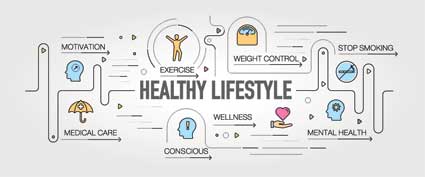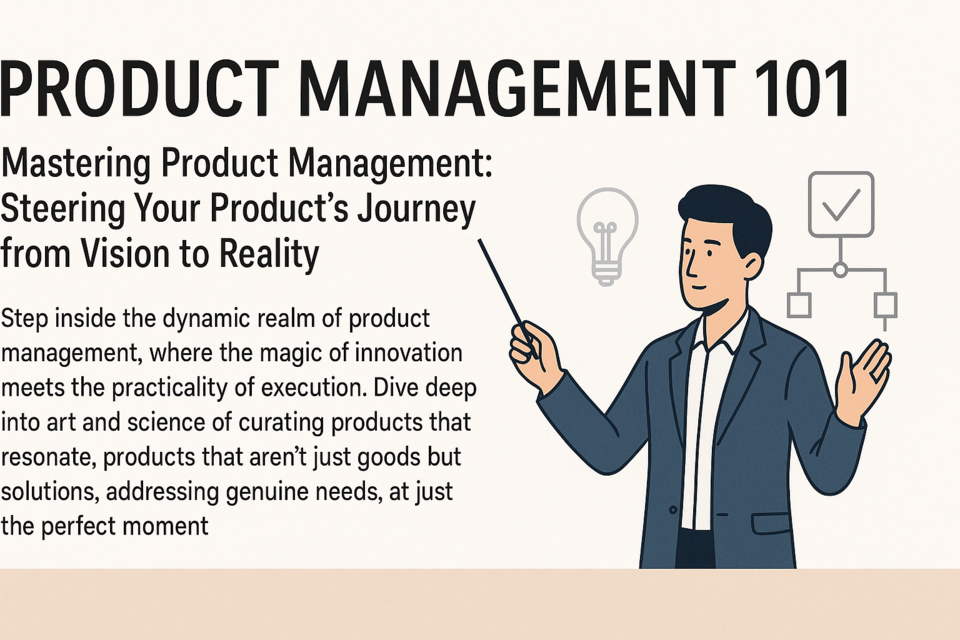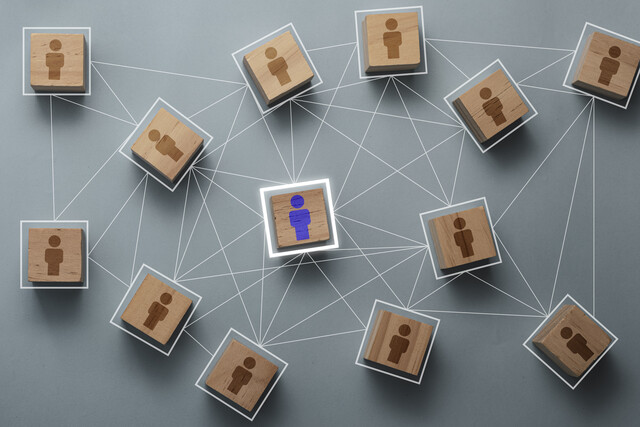Effective Communication Skills
How to Talk to Anyone
Much of the time, you will be in situations where you need to speak with a variety of people. All of these calls or visits will require different sorts of conversations, allowing you to help people with a problem or to gain information.
In order to effectively communicate with everyone, it will help for you to focus on a few key skills:
- Remember your purpose. When you are talking with the other person, remember what your job is and what you are trying to do. This will ensure you are communicating in an effective way.
- Focus on the person's positives. Even if a person is being less than kind to you, try to find something positive about her or him so that you can stay focused on helping the person and addressing the concerns.
- Be willing to be wrong. If you find that you have done something wrong, then admit to this being the case. Then try to find a way to solve the issue.
- Be honest. No matter what happens, try to be honest with the person with whom you are communicating. This will help the person trust you and feel that you will be helpful.
The more that you talk with others, the easier it is to relate to others and to determine how you can help.
Speaking with Clarity
When you are speaking to another person, you will want to be as clear as you can in your conversation. To do this, you will want to:
- Think about what you need to say. If you need a moment or two to think about something before responding to another person, you can let the person know this. In most cases, the person will be happy that you spent the time thinking, as opposed to just rattling off any answer that comes into your mind. If you feel it might take more than a few minutes to think about what you need to say, then ask if you can call back with an answer.
- Do not repeat what you have already said. When you are communicating effectively, you should only be adding to the conversation what is new and relevant. Think about what you have already said and try not to repeat it, as this can make it seem as though you do not believe the other person is capable of listening.
- Consider what they already know. When talking with anyone, try to assess what the other person knows so you can talk to him or her on an individual level. If you are not sure about the person's knowledge, then ask whether you should explain something. If not, then you can move on with the conversation.
Clarity can seem like a bit of a high-level communication skill, but it is actually something that we do automatically with people we respect.
Listening Skills Matter
While communication often focuses on what you say and how you say it, you also need to be an adept listener if you want to create a positive interaction with someone else.
When the other person to whom you are speaking sees that you are listening, that person will begin to relax, even when upset about something.
To be an effective listener, it will help to use a few simple tools:
- Actually listen. While you might already be thinking about what you will say when the person stops speaking, it is better to focus on what the person is saying, as this will help guide your response when the other person completes his or her thought.
- Focus on the other person. No matter what else is going on, always keep your focus on the other person that you are speaking to. If this means that you need to tell that person that you need to remove some distractions before you continue your conversation, be clear about this. Always bring your focus back to the other person.
- Remove distractions. If there are distractions that are causing you to have troubles with the conversation or listening to the conversation, then remove those immediately. Turn off your computer, turn down the radio, and do what you need to do in order to focus completely on what the conversation is telling you.
- Create private space. When you are talking to a person in the office, it can help to create a separate space in which you can speak with the other person. Go to another part of the office or go to a place where you will not be disturbed.
- Give affirming statements. As the other person is talking, insert "yes" and "I understand" to show that you are listening. When talking in person, nod your head.
- Make eye contact. If you are talking to a person who is speaking to you in person, then make sure you are looking at that person the entire time, making clear eye contact.
- Ask questions for clarity. Should you find that anything the other person is saying does not quite make sense, then you should ask questions to ensure you understand what the person is trying to relate to you.
Listening is actually the key to better communication. After all, when you listen well, you will know what to say in response.
Summary
The better your communication as a secretary, the better you will be able to function. No matter whom you are speaking to, customer or co-worker, it helps to not only engage in constructive conversation but also to listen to what the other person is saying.
Time Management
In order to handle these ever-changing shifts in your schedule, it can help to learn about time management. When you have a sense of how to manage your time, you will have a better chance of getting everything done, even when you have a longer lists of tasks to accomplish.
How to Schedule Your Day
Each day, you have a certain number of hours that you will need to fill. Depending on the way that you work and the way that you are assigned the work you need to do, your schedule might look different. While there are many different thoughts on what might work for an effective work schedule, you might find that you have different ways that work better for you.
What you might want to do right now is to determine what the expectations of others include before you settle on a schedule for your workday.
- When are you expected to answer phones?
- How quickly are you to respond to mail and e-mail?
- What office cleaning responsibilities or inventory duties do you have?
- How does your schedule impact others around the office?
- When is your lunch?
- Do you have other breaks during your day?
- What hours are you supposed to work? Can you be flexible your time?
By getting a sense of how others might want you to work, you can begin to adjust your schedule to meet the need of those you support. You need to make sure they are taken care of, after all.
One way to schedule your day is to sit down with a blank paper calendar and fill in all of the duties you have each day at certain times. Then you can block out your lunch and other breaks.
The time that is left is what you have to work with when you are scheduling your days. You may want to break this time up into different kinds of work that you do:
- correspondence;
- office setup;
- filing;
- data entry;
- customer contact.
When you look at your day like this, you can begin to arrange it in a way that makes sense for your schedule and that makes sense for the work you need to accomplish.
Determine Your Priorities
Of course, the best way to schedule your day and make sure you are effective in your job is to determine what your priorities are. There are a number of different ways in which you can determine your priorities.
- Ask for weekly priorities.
- Ask for daily priorities.
- Review your priority list each morning.
A good way to handle a schedule that is always shifting, with some things becoming more important than others during the day, is to label your tasks with different priority labels.
Here are some systems that can be helpful:
- Red, yellow, green: Label all of your duties in terms of these colors, assigning the most important duties as red for something that is urgent, yellow as things that need to be done when the red items are completed, and green for things that you can get to eventually.
- Numerical: Some people like to focus on their priorities in terms of numerical value, with 1 or 10 signifying what is most important to do.
- A, B, C: Another method is to assign "grades" to the priorities, helping you see what needs to be done first.
What you will want to do as you assign these priorities in the morning, or the evening, depending when work begins for you, is to assign the priorities and leave them as they are.
Do not spend the rest of the day changing the priorities, as this might cause you to lose focus on what you need to do.
Stick with the priorities, and if you hear from your boss that things need to change, then you can show your boss your list and ask what can be made lower priority in order to create a more effective and efficient day.
Priorities might be ever-changing for you, especially in creative and health-related industries. When this is the case, you will find that you learn which items are high priorities and which are not, without having to label your tasks.
Working Efficiently
Work When You Are Energetic
One way in which you can work with the natural tendencies of your body is to work on the harder tasks when you have the most energy. For many people, this is first thing in the morning, before they have the mid-afternoon slump.
For others, this might be in the afternoon, as they feel more energized when they know it is almost time to leave.
Here are some ways to use this technique:
- Schedule hard tasks for the high energy times.
- Focus on less important tasks during low energy times.
- Chart your energy to see where you might need to adjust your schedule.
You already know what sort of person you are, as you think back over the way you have worked at other jobs. When you consider the natural energy levels you have, you can begin to see just how you can also work with them instead of using caffeine as a way to break through to get things done.
The Pomodoro Technique
It is thought that the human mind can focus on tasks for only about 90 minutes at a time. If this seems like too long of a time for you, the Pomodoro Technique is another good way to keep your motivation and your productivity up.
This system is based on two major tenets:
- Work in short bursts of about 25 minutes.
- Take breaks of five and 20 minutes.
What you want to do is to set an alarm for 25 minutes. Work on what you need to work on and nothing else for that time. At the end of the time, take a five-minute break.
Repeat the 25-minute block, and then another five-minute break. Then repeat another 25-minute block and then a five-minute break. Finally, do one more 25-minute block and then a 20-minute break.
As you can see, you are putting your brain on focused work for about 100 minutes, with breaks to help you relax and refocus.
You just continue this cycle until the end of your day. You will find that you can get a lot more done in those short bursts of focused energy than you might be able to if you did not create limits for working.
Try it out for a few days to see what it might do for your work productivity.
Turn Off the Distractions
The best advice that you can have when it comes to boosting your time management and work productivity is to remove all distractions from your office.
When you are at work, this means you should avoid any outside Internet surfing, phone calls, list making, etc. Focus only on the work that you have on hand, nothing else.
For many people, this means turning off the Internet, whenever possible, or taking some time away from the phones if this is a large part of your day. If possible, allow the phones to go to voicemail when you are working on a larger project, helping you focus on what you need to do and getting it done.
Do the Easy/Hard Tasks First
Some people find that it is more motivating to do all of the easy tasks on their "to do" list first because it helps give them a sense of accomplishment. On the other hand, getting the hard tasks out of the way can also help you manage your time more wisely.
If you are not sure what will be more motivating, try both options on different days to see what this does for your work life.
For those who are accomplishment-driven, it can be helpful to create a notebook in which you write down all of the things you have done during the day.
You can review this notebook when you feel you are not accomplishing anything, and then you can show others this notebook when they want to know what you have done for the day.
Be Accountable for the Things You Complete
Accountability is a great way to improve productivity. Start sending in reports to your boss or supervisor at the end of each day and week to show your accomplishments, as well as to keep yourself on track.
While there will certainly be weeks when you do not get as much done as you might like, this accountability will ensure you are still moving forward as you know that someone else will be watching what you are doing.
Summary
Time management is about more than just watching the clock and making sure you get all of your work done. When you use your time wisely, you will create a better momentum for staying ahead of the things you need to do.























